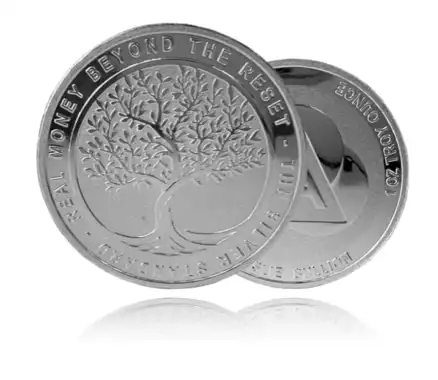Has The Fed Doomed Itself?
News
|
Posted 29/01/2024
|
2149
Fed officials have thoughtlessly taken to the limelight, making public statements that swing markets. They are now seen as completely responsible for the economy. What could go wrong?
After 2008, the traditional style of investing was permanently changed. Hedge funds wowed other investors by piling into inflation resistant investments, gold included, and showcasing astronomical returns. Other investors were still trapped in the mindset of saving cash and hunting for “quality” companies to buy shares in.
The change came from the central bank using an excess of its power to flood the economy with liquidity. We give you monthly updates on this critical metric here. Ben Bernanke embraced the limelight of being Fed Chairman and would openly gloat about how his actions were pushing the markets up. Fed Chairs historically shied away from attention and stuck to the line that they are just working in the background to keep the economy balanced and make sure inflation is under control. The economy was supposed to be all about what businesses were achieving and any political interference was from the president, congress, or unions. Bernanke, in the attempt to put a positive spin on inflation, inadvertently drew attention to the power and importance of the Fed.
Dramatically increasing the money supply is arguably the easiest way to create economic happiness in the short-term. One major side-effect, inflation aside, is that this strategy punishes good behaviour and rewards irresponsible behaviour. Companies with quality products and minimal debt could be crushed by companies that aggressively accumulated easy money. The first way was to take on large amounts of debt and use it on short-term gains, like buying out competitors, rapidly expanding and buying back their own shares to create the illusion of success. The second layer came from freshly cashed-up retail investors looking for somewhere to dump their cash (or near free debt) and putting it on the fastest (looking) horse. The result was companies that produced little extra value for society, aside from having rapidly rising valuations.
These days you would be lucky to find any high-ranking news about a company’s performance, aside from a handful of big names. The most important news headlines are about central banks changing interest rates or talking about their plans to change interest rates. The next most important and high-ranking headlines are analysts essentially punting on what the central bank may do with interest rates. They have shown the world that they pull all the strings and that they are the only thing worth focusing on.
The Fed Chair, as well as all the other Fed officials, are now celebrities in the world of finance. They have completely embraced their fame and power and have openly abused it with no fear of backlash.
A typical play one could see in the last several years goes something like this:
- Fed speakers come out and say they think interest rates should do X.
- Traders panic and start buying/selling based on the news from the Fed.
- The Fed Chair comes out and says that he actually thinks interest rates should not do X.
- Traders panic and start flipping their trades the opposite way, many getting wiped out in the process.
How dangerous is it for their reputation and survival that they are coming out to the media whenever they get the chance, basking in the public’s perception that they are the complete owners of the economy, and then gaming investors by making opposing calls on each day of the week.
A textbook example of this on a smaller scale was when Trump was in office and moved markets with his commentary. To be fair, it’s impressive that everyone had so much conviction in him. Whenever he said something about a sector in the economy, it would react drastically. Many finance professionals were required to have a tab open at all times of Trump’s Twitter account.
After making a few calls that swayed investor sentiment back and forth, his tweets started to lose their power. Investors started getting disgruntled at his mixed calls. Trump had Wall St following him on Twitter, but he did not control interest rates and the world reserve currency. The Fed does all these things, and they are making more market calls than Trump ever did, so what do they expect to happen? Traders could have easily stopped trading on Trump’s tweets, but people can’t simply stop following the Fed’s policies because they literally control the currency.
Perhaps they know it’s over, so they are milking their remaining power while they buy up as much gold as they can in the background. It seems just as likely though, that they also have gotten lazy and have a feeling of invincibility. This perceived invincibility could be seriously tested if consumers pull-out from their fiat game and start using real money. It will especially be tested if merchants realise that it is easier, faster, and higher earning to take a silver coin than it is to deal with expensive digital machines, transaction fees and the accompanying financial surveillance.
One coin for a week of fruit and vegetables at a farmers’ market – and the farmers get real money that holds its value. Now there’s a reset if we ever needed one.

1 OZ silver: Real money beyond the reset